Something Good #102: My Dr. Ruth Debacle
How not to get to Carnegie Hall.

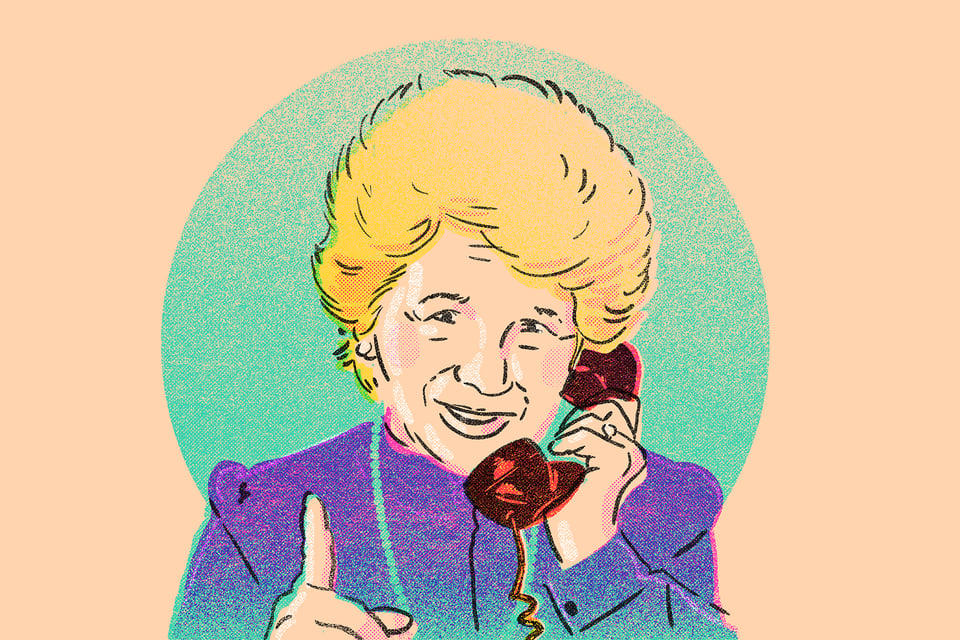
When Dr. Ruth Westheimer died last month at the age of 96, the world mourned the loss of a pioneering sex therapist, educator, ethnographer, and unlikely media mega-star.
Inwardly, I cringed. Not because I thought the tributes were unwarranted, but because Dr. Ruth was the most fumbled interview experience of my career as a journalist—an encounter that went so poorly that 10 years on, I still hadn’t brought myself to listen to my recording of it.
It all started in the March of 2013, when friend of the newsletter Sheila Heti, then the interviews editor of The Believer magazine, emailed me with an intriguing offer:

I replied, four minutes later:
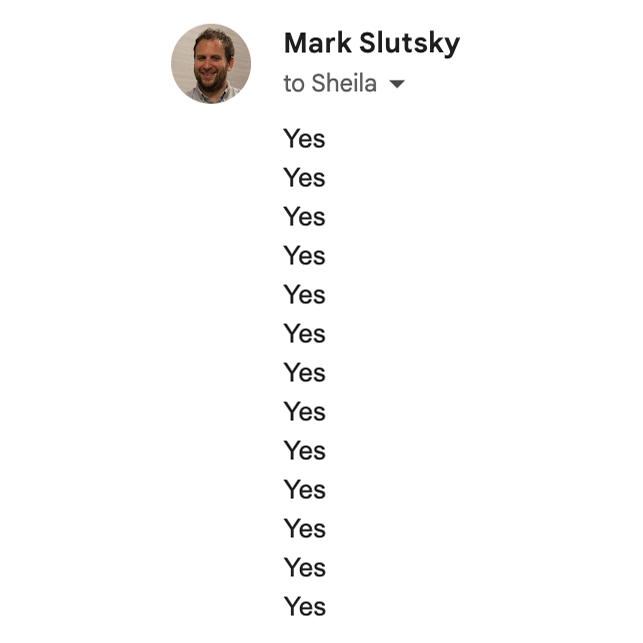
This was during the period where celebrity was still negotiating its relationship with social media. Dr. Ruth was an early success story; a beloved but less prominent personality who had restored a modicum of fame by tweeting out sex advice and dirty jokes.
She seemed somehow to be the exact same age she had been when she’d first ridden to stardom (nationally syndicated TV show, People magazine covers, even a sitcom) in the 1980s, and her tweets held nothing back.

Of course I wanted to interview her, and the more I read about her fascinating life, escaping the Nazis via the kindertransport, training as a sniper in the Haganah, living for 50 years in the same apartment in Manhattan’s Upper West Side, the more I wanted to ask her about it.
So I reached out to her people and got a prompt “Dr. Ruth says OK” in return. How exciting! When I look back at my emails from that time, all I see is a sort of doomed innocence.
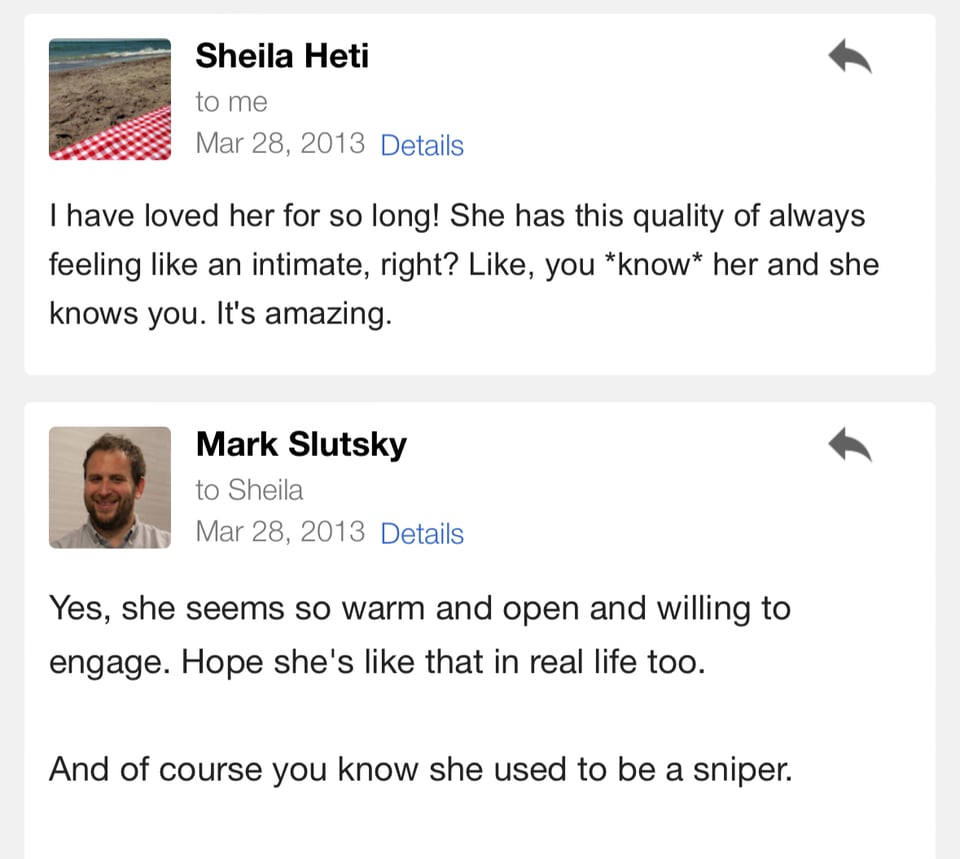
I bought a train ticket to New York, where I stayed with a friend. The day came; it was the end of April and unseasonably warm. I had underestimated the time it would take me to get from Brooklyn to Dr. Ruth’s office and I was sweating as I arrived. It was in a tall office building near Grand Central Station, not at all where I imagined her tweeting out jokes about 69ing. As it turns out, she had a space in the office of her son’s finance company (or something). The upscale, big business surroundings threw me. I was led to her office. I introduced myself.
When I would tell this story in the following years, I would describe how things seemed to go south with frightening speed as soon as I sat down with Dr. Ruth. How from the get-go she was impatient, uninterested in answering any questions about her life, irritated at the very suggestion of opening up. She was put out that I hadn’t brought along a copy of The Believer, which she had never heard of, and it became very clear that an in-depth conversation of the type the magazine had become famous for was out of the question.
She was happy to rattle off talking points about her awards and honours, sex ed talking points, encounters with other celebs, but I wasn’t going to get anything else. She picked off my hopes from a hundred yards with the practiced aim of a trained sniper. Eventually, defeated, I slinked out of the building with nothing to show but a Sex for Dummies keychain and half an hour of unusable tape, which I avoided listening to for the next 10 years.
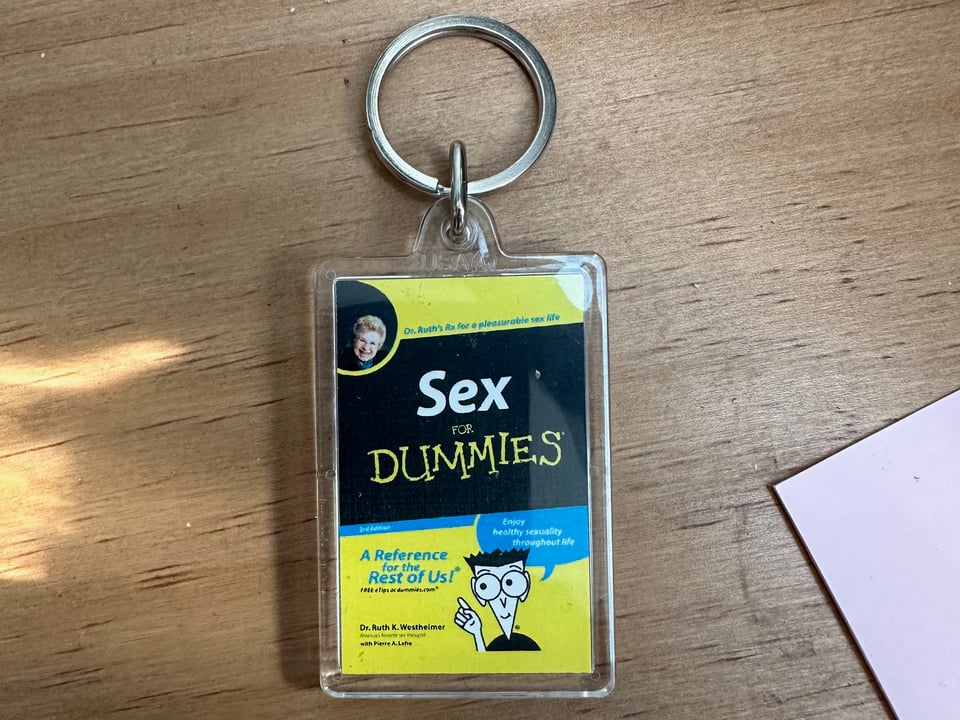
This was the story I would tell over the years whenever the topic of “your worst interview ever” would come up. But did I even remember it correctly? All well-told funny stories build up a certain patina of exaggeration, and I started to wonder how much was real and how much was just embellishment for comic effect. The detail about how she’d rushed me out because she’d been eager to to get to an engagement at Carnegie Hall, off all places—I had to have made that made up, right?
It was until after the news of Dr. Ruth’s passing that I summoned up the courage to dig up the recording, which lived in a file called “drruth.MP3” in a dusty corner of my hard drive. I could still barely bring myself to listen to it, so I had it transcribed.
I anxiously opened the transcript, and what I found was…
Well, it was something unexpected—and wonderful.
As I read, I was astonished to find that what I’d remembered as a tense exchange came alive, in the revisiting, as a conversation that wasn’t so much convivial as contested. It was no friendly, superficial chat, but what is known in Japanese as hara o watta hanashi—literally meaning a dialogue in which “the belly is split open,” revealing both the pleasant and the profane. We’d circled each other like wary fighters, with the implicit understanding that we were challenging each other to reach higher, to do better—
Wait!!! Wrong!!!
I’m sorry, I couldn’t help indulging myself for a second there. What I actually found was 17 pages of this:
[Mark]
So, yeah, so thank you for agreeing to be interviewed. I thought I maybe wanted to start by asking you about your life, maybe sort of from the beginning.
[Dr. Ruth]
No.
[Mark]
You don't want to?
[Dr. Ruth]
No.
[Mark]
Okay.
That’s the first 30 seconds of the tape. I wish I could say it got better from there. You can almost see my stomach falling in real time.
[Dr. Ruth]
No. Let's talk a little about what I'm doing now.
[Mark]
Okay.
[Dr. Ruth]
My life has been in the autobiography, and it has been in Musically Speaking,1 very much described. So, who else did you interview, so I get a little bit of a flavor of what I want to do with you.
[Mark]
Well, we've interviewed authors like Michael Pollan, who writes about food, filmmakers, basically, yeah, interesting cultural figures. This is my first interview I've done for this magazine, so, basically, yeah.
[Dr. Ruth]
Okay, but how much time, how much do we need?
[Mark]
Well, it's going to be a several page interview, so as much time as you can give me, we can...
[Dr. Ruth]
All right, so let's talk, not about my life, that you have to take out from the autobiography or get it from the internet. Okay, this is your first interview ever?
(It was not.)
At one point I tried to find common ground by bringing up a movie I’d just seen…
[Mark]
Did you see the movie How to Survive a Plague?
[Dr. Ruth]
No.
[Mark]
It was about the AIDS crisis in the 80s and about how the gay community sort of came together to try and find a cure or trying to find a treatment. It's quite an incredible story.
[Dr. Ruth]
They did a wonderful documentary about me, the British. It's called Twelve Extraordinary Women. And I'm one of them.
Nope!
Look, I do not wish to make fun of the dead, especially a woman with such a long, distinguished and dare I say, important career. She was in her mid-80s, still unbelievably active, when I came to visit her, and what did she owe me? Nothing! What could a bit of publicity in a literary mag mean do for her? Less than nothing!
Still. About one thing, I wasn’t wrong.
[Dr. Ruth]
It's wonderful that here, at this stage in life, I'm now doing a brand new book, which is out in German but not out in English yet, about the myth of sex, with pictures, and telling from Roman and Greek stories. I do it with Jerry Singerman, the same Singerman that I did the Musically Speaking with. I have plenty of new projects, very busy.
[Mark]
Nice.
[Dr. Ruth]
Very busy, so ask me two more questions and I'm going to Carnegie Hall.
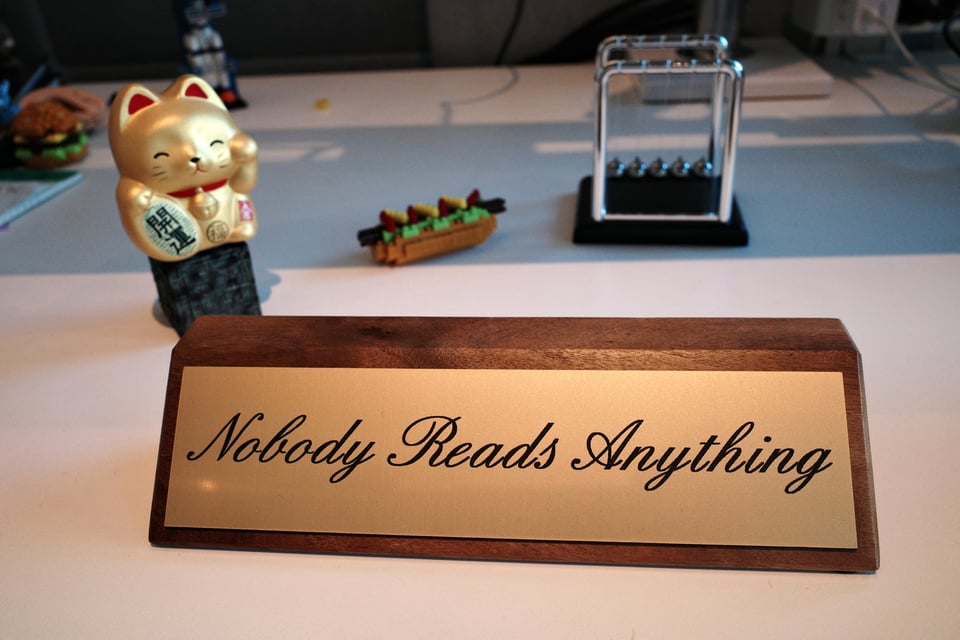
I made a plaque for my desk which summarizes my general point of view as a professional writer. Some people have expressed interest in acquiring their own, so I wanted to ask: is this something you would buy for a reasonable (TBD) price? If so please reply and I may do up a run.
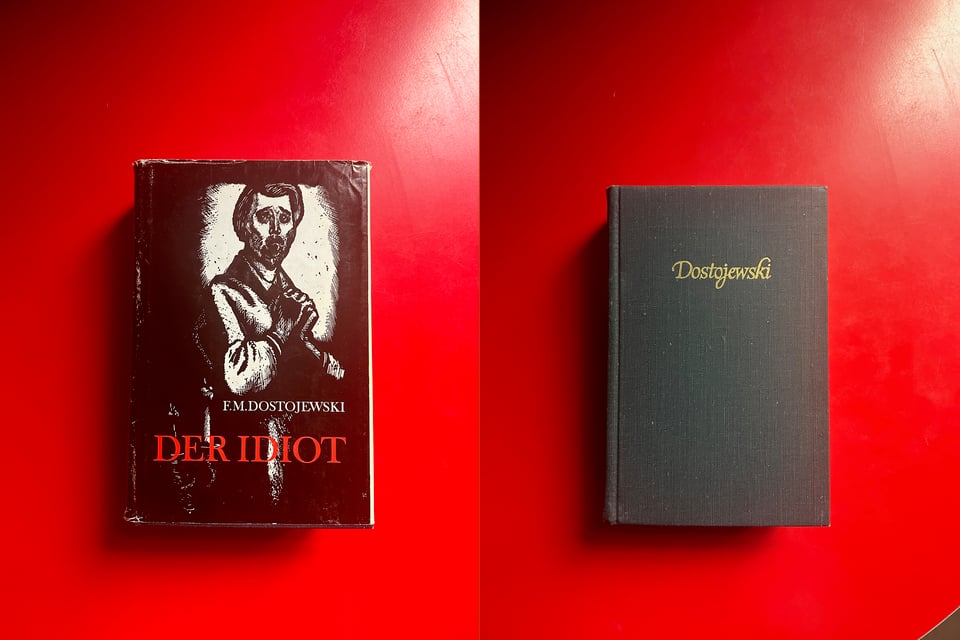
This week’s #nojacketsrequired expresses well how I felt that day in March, 2013. I found it in the Owl Pen bookshop in Bracebridge, Ontario—a charming place, I recommend you stop there if you’re in the area. As always, send me your dusty, dejacketed finds.
Bonus track:
Adam Waito created the Dr. Ruth portrait up top; I encourage you to go to him for all your illustration needs.
You have been reading Something Good. If you like it, please tell a friend or subscribe below.

A “memoir through song” Dr. Ruth wrote in 2003, describing the impact of music on her life: the German “play-songs” of her childhood, the French chanson of her life in Paris, the Hebrew-language songs of the kibbutz she lived in after the Holocaust. I would have loved to ask her about it! ↩
-
I love this so much! I have shared it with my whole critique group, and we all agree that having a placard on our desk that says "Nobody Reads Anything Anyway" would help us keep things in perspective. That's six smart women who think you're onto something. Thank you for your writing and your good humor!
-
I was diagnosed with OCD toward the beginning of the year, and one of the exposures my ERP therapist used was having me read some of my old work aloud. A healthy practice, of course, but still: I think I can imagine how it must have felt to press play on that long-ago recording...
Add a comment: